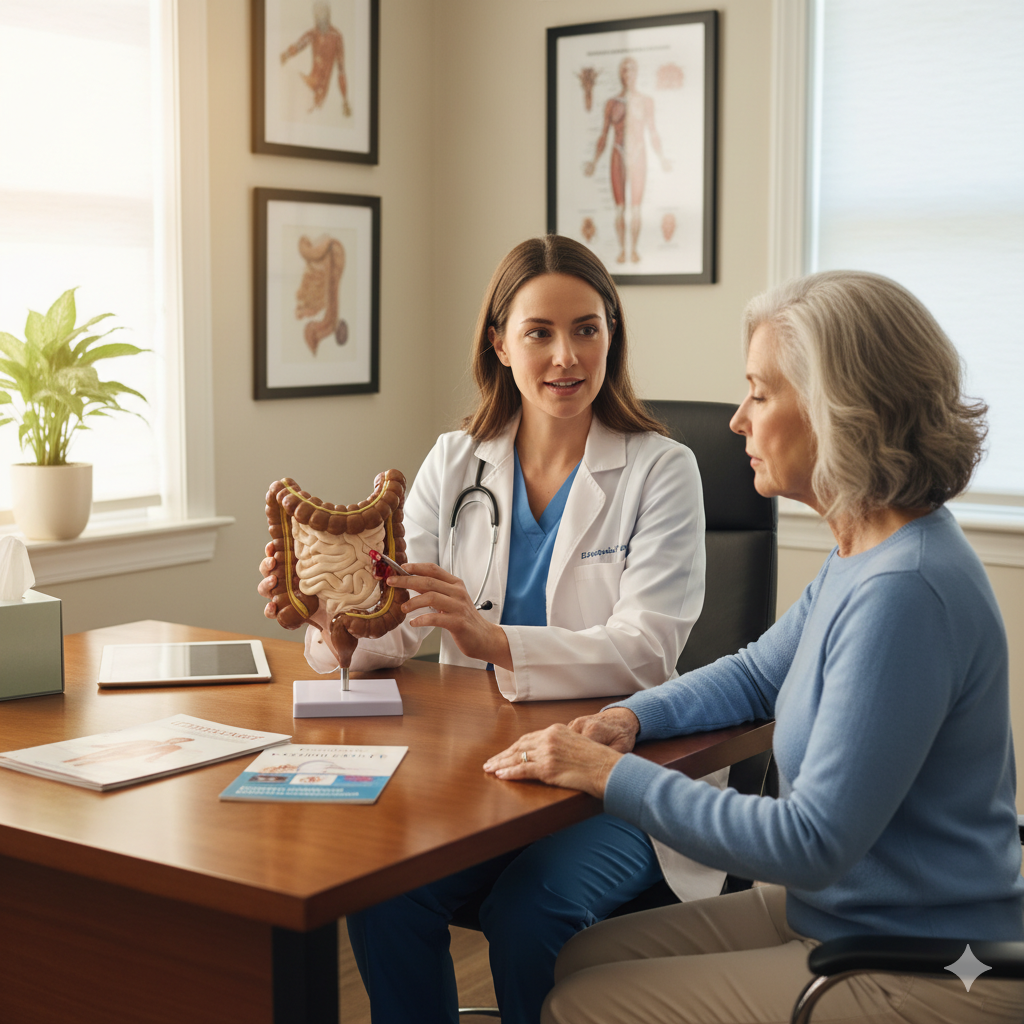Limiting Your Risk: Advances In Colon Cancer Detection And Risk Reduction
September 24, 2025

About a year ago, we highlighted some new options and advances that were likely to make screening for colon cancer, beyond colonoscopies, easier and more accepted. As you may know, when caught early, colon cancer can be highly treatable and even preventable if pre-cancerous polyps are found and removed. But colon cancer remains the second-highest cause of cancer deaths in the US. Not every older adult keeps up with colon cancer screening, and younger groups, who are seeing rising rates of colon cancer, are even less observant of recommended screenings. Why do people hesitate? Perhaps they don’t think they are at risk, or perhaps they don’t want to endure the prep or risks of a colonoscopy. On that score, there’s definitely some news. According to new guidelines issued by the US Multi-Society Task Force on Colorectal Cancer, many of the most burdensome aspects of colonoscopy prep may no longer be necessary. A new post in National Geographic highlights changes to the prep that may be just enough to get you on the exam table. Among the changes? Some light food items, such as eggs, yogurt, and chicken, can be consumed the day before the exam, with only the need for a liquid meal the night before (assuming your test is the following afternoon). As for drinking a gallon of that terrible beverage you previously had to endure? That appears to be a thing of the past, with a much smaller drink replacing it.
What about non-colonoscopy screening options? As was mentioned in our post from last year, the manufacturers of Cologuard planned an updated test, called Cologuard Plus, which is now on the market. Cologuard Plus detects 95% of colon cancers- similar to a colonoscopy- compared to 67% for other stool tests, and correctly identifies those without colorectal cancer or advanced precancerous polyps 93% of the time, and should be covered by Medicare. Of course, as with any non-colonoscopy test, if your results come back as positive, you are then advised to have a colonoscopy to confirm the positive results. There are also some newer, technology-advanced options coming down the pike. One option now being tested is a tiny capsule endoscopy, which involves the swallowing of a “camera” pill that sends video to your doctor’s computer as it winds its way through your colon. Another new option is highlighted in a study out of Geneva that uses artificial intelligence to analyze gut bacteria and can spot colorectal cancer with about 90% accuracy from a stool sample. Coming close to the accuracy of a colonoscopy, this new test may one day become an easy screening test for colorectal cancer and may also provide more insight into the role of gut bacteria in human health. For more on this “techno” test, read here.
There have also been a host of new studies exploring steps you can take through diet and other means to lower your risk of colon cancer. For example, a large new study of over ½ million women followed for 16 years reports that foods rich in calcium may significantly help lower your risk of colorectal cancer, while alcohol and red meats may raise your risk. In this study, consuming an additional 300 milligrams (mg) of calcium each day- which is about one glass of milk- lowers an individual’s risk for colorectal cancer by 17%. Another recent study reports that eating more cruciferous vegetables, such as broccoli or cauliflower, is also linked to colon cancer prevention. And for those already diagnosed with colon cancer, there’s also good news about an easy-to-access, valuable therapy. According to new research published in The New England Journal of Medicine, daily use of a low-dose aspirin can reduce the risk of recurrent cancer (which happens 30-40% of the time) by more than 50%.
So the news about preventing and diagnosing colorectal cancer continues to be positive- now you just need to take advantage of these advances as you continue on your own health care journey.







